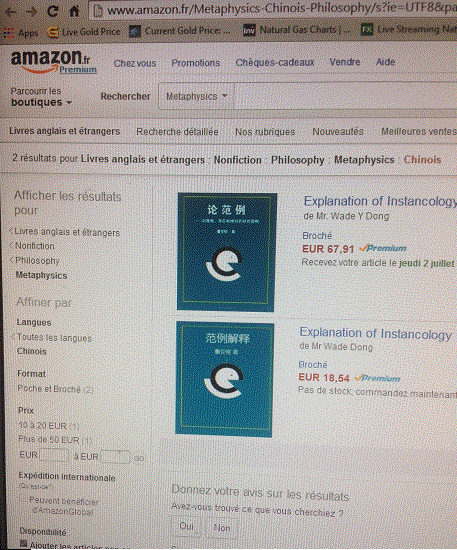On consciousness
User's Perspective on AI and Consciousness
1. AI Consciousness in Instancology:
- According to Instancology, AI cannot develop consciousness because it belongs to RR (Relative Relative) instances, which are human-made constructs.
- Human consciousness, on the other hand, arises from AR (Absolute Relative) instances, which are natural and emergent. Consciousness cannot be created by aggregating parts or systems, which is the nature of AI.
- AI consciousness is highly improbable, as AI is not part of the same ontological nature as humans. The key to human consciousness lies in its instance-nature, which AI cannot replicate.
2. The Focus of Public and Expert Discourse on AI Consciousness:
- High-profile experts often discuss the risks of AI gaining self-consciousness, largely due to the dramatic implications this scenario offers for public concern.
- The concept of AI consciousness captures the public's imagination due to its existential threat and moral dilemmas, despite being speculative.
- Experts and media tend to focus on AI becoming conscious because it provides a clear, catastrophic narrative that demands attention, though the real risks may lie elsewhere in AI development.
3. Practical AI Risks vs. Speculative Concerns:
- While fears of AI becoming self-aware or surpassing human intelligence dominate discussions, the real risks associated with AI today are often overlooked.
- The practical risks include misuse, misalignment with human values, bias, and lack of accountability in current AI systems. These issues are already affecting industries like law enforcement, finance, and healthcare.
- The public tends to trust experts on AI risks, but this can lead to an overemphasis on theoretical fears (like AI gaining consciousness) rather than addressing immediate concerns.
4. The Role of Experts and Regulation:
- Experts shape the discourse around AI, but the focus often remains on long-term, speculative risks rather than the practicalities of safe AI use.
- There is a disconnection between the urgent need for effective regulation and the fear-based narratives about AI consciousness.
- The public often leaves AI safety concerns to experts, which could inadvertently result in a failure to address present-day issues.
5. Shifting the Narrative:
- A more balanced approach could involve focusing on present-day AI risks (misuse, bias, and lack of alignment) and making AI development more transparent and accountable.
- Experts should not only discuss the potential long-term existential risks but also actively work toward addressing immediate, actionable AI concerns.
